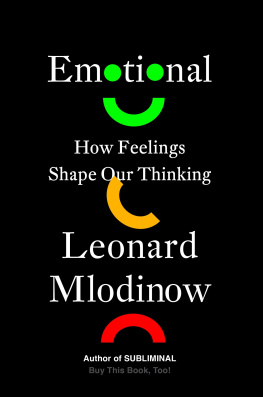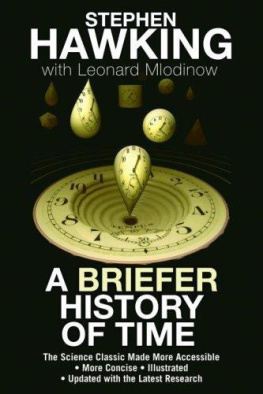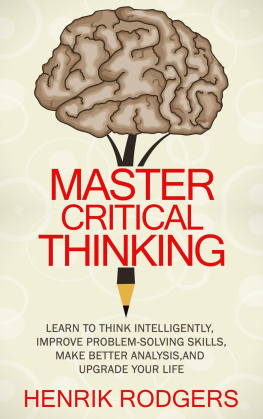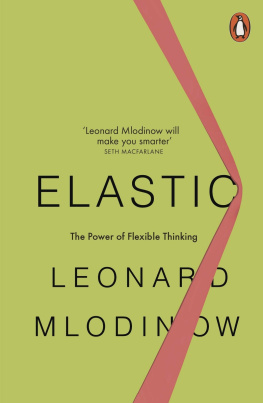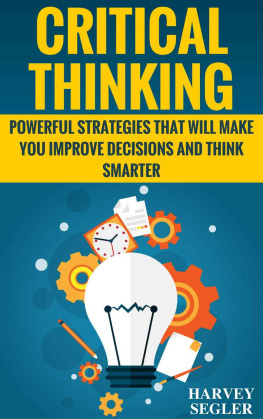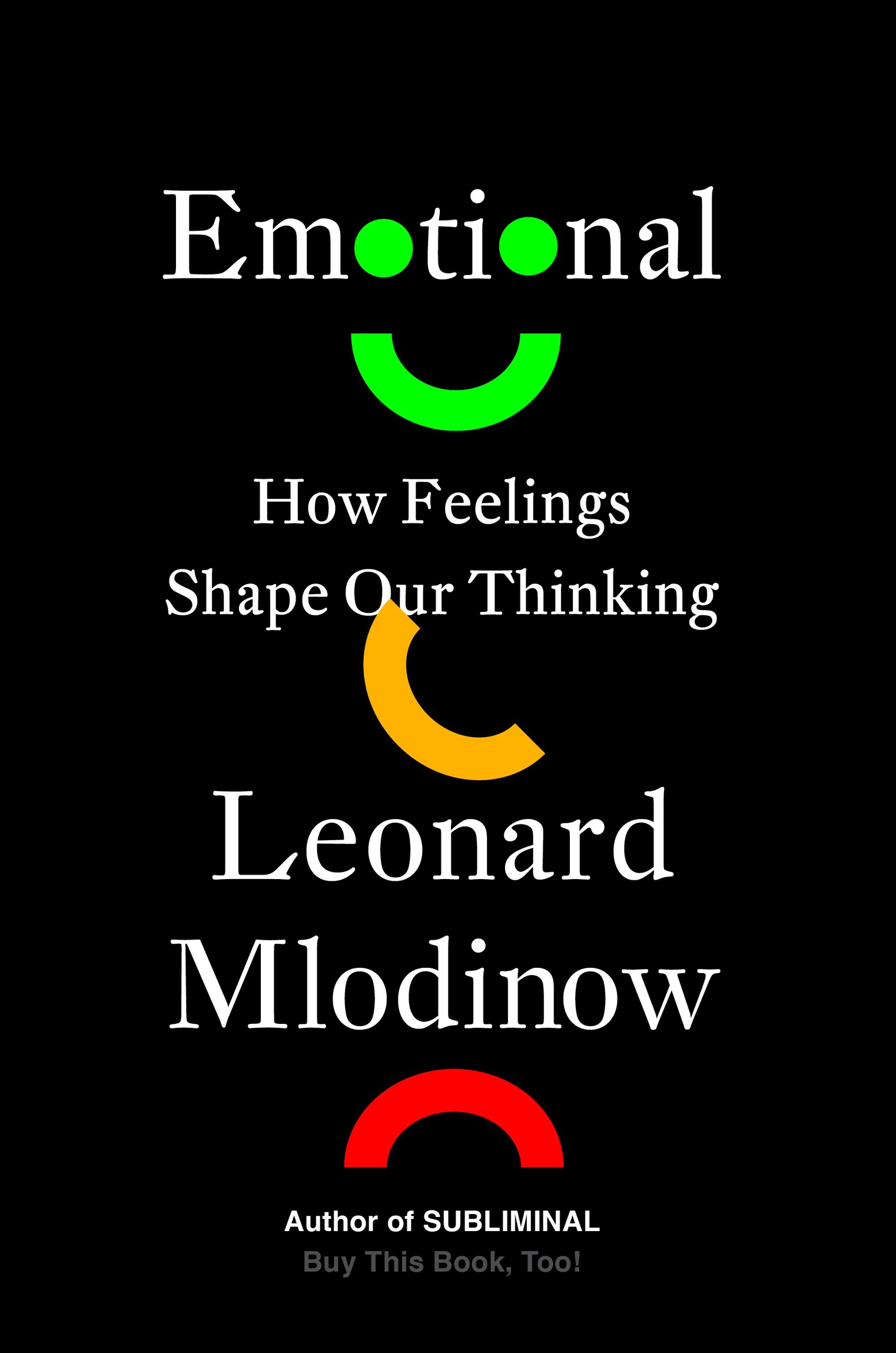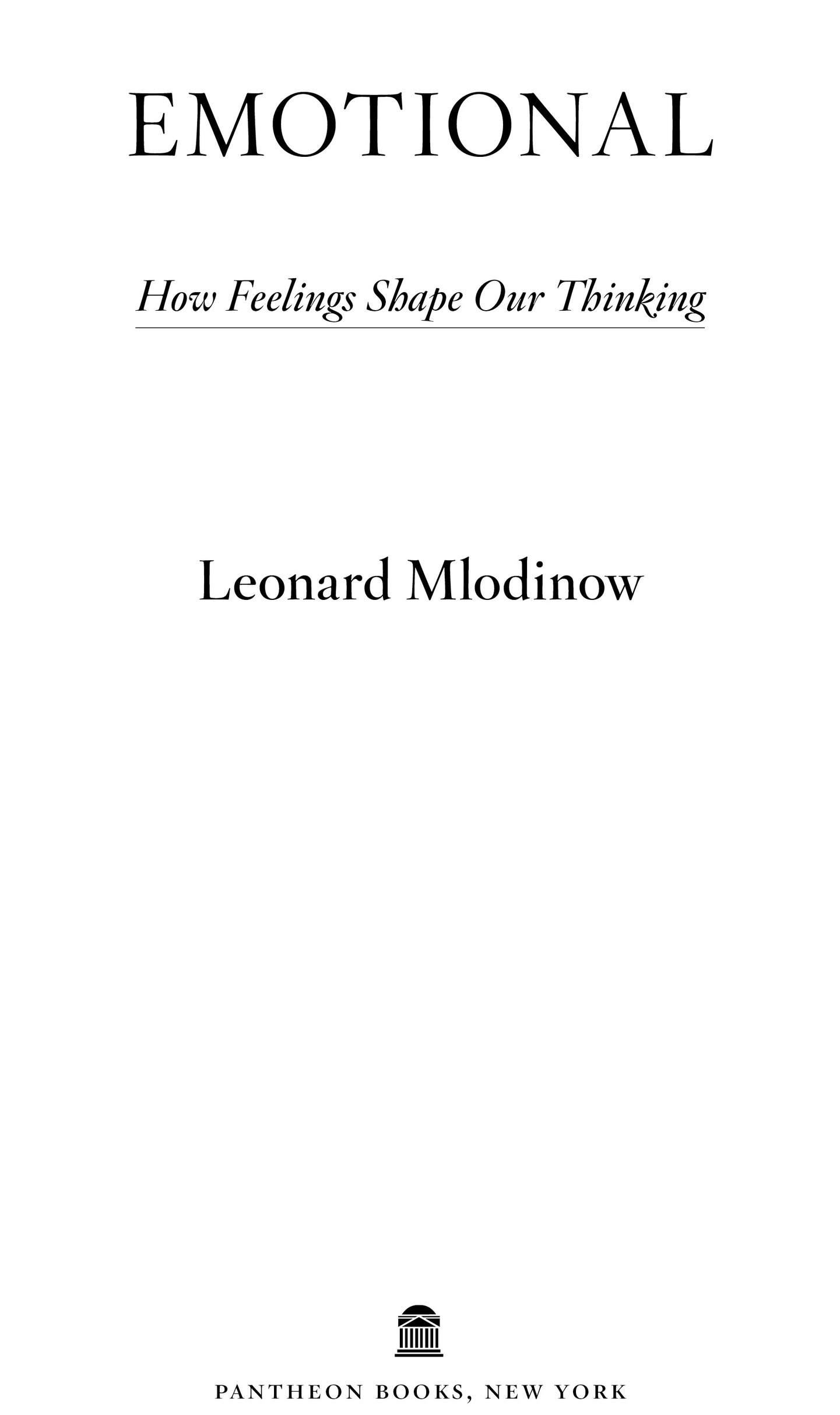The evolutionary objective of emotions, and how emotions differ in animals ranging from insects to humans
Assessing which emotions you are more inclined to feel, and the manner in which you tend to react to potentially emotional situations
Introduction
In some families when a childs misbehavior passes a certain threshold, they give the child a time-out. Or they sit down and talk about why it is important to obey, or not to act out. In other families a parent might give a child a paddling on the rear end. My mother, a Holocaust survivor, wouldnt do any of those things. When I made a big mess or tried to flush the transistor radio down the toilet, my mother would work herself into a frenzy, erupt in tears, and start to scream at me. I cant take it! shed shout. I wish I were dead! Why did I survive? Why didnt Hitler kill me?
Her rants made me feel bad. But the strange thing is, as a child, I thought my mothers reaction was normal. You learn many things growing up, but one of the strongest lessonsone that sometimes takes years of therapy to unlearnis that whatever your parents say about you is correct and whatever happens in your household is the norm. And so I accepted my mothers rants. Sure, I knew that my friends parents, who hadnt gone through the Holocaust, would not make the Hitler reference. But I imagined them spewing in some analogous manner. Why did I survive? Why didnt that bus run me down? Why didnt that tornado carry me away? Why didnt I have a heart attack and drop dead?
The idea that my mother was an outlier finally occurred to me at dinner one evening when I was in high school. She spoke of a psychiatric appointment she had gone to earlier that day. The visit had been required as part of her application for Holocaust reparations from the German government. The Nazis had confiscated her familys considerable wealth when the war began and left her a pauper. But the payments were apparently based not just on financial considerations. They were based on evidence of emotional problems stemming from what she had endured. My mother had rolled her eyes at having to go to the appointment and was certain that due to her fine mental health she would be denied. But as my brother and I picked at the tasteless boiled chicken on our plates, she told usindignantlythat the doctor concluded that she indeed had emotional issues.
Can you believe that? my mother asked. He thinks Im crazy! Obviously, hes the crazy one, not me. And then she raised her voice at me. Finish your chicken! she said. I resisted. It has no taste, I complained. Eat it! she said. Someday you might wake up and find that your whole family was killed! And you, with nothing to eat, will have to crawl on your belly through the mud in order to drink stinking, filthy water from mud puddles! Then youll stop wasting food but itll be too late.
Other kids mothers lectured them about not wasting food because there were people starving in impoverished faraway lands. My mother told me that I might soon be the one desperate to eat. It wasnt the first time my mother had expressed such a sentiment, but this time, backed by my mental image of her wise psychiatrist, I began to question her sanity.
What I know now is that my mother was warning me about the future because she was tortured by her past, terrified that it would repeat. She was telling me that life might look good now, but that was just smoke and mirrors, and would be replaced by a nightmare sometime soon. Not recognizing that her expectation of future cataclysms was rooted in fear, not reality, she believed that her dire expectations were well-founded. As a result, anxiety and fear were never far from the surface.
My father, a former resistance fighter and Buchenwald death camp survivor, had gone through comparable trauma. He and my mother met as refugees soon after the war had ended and for the rest of their lives experienced most life events together. And yet they responded differently, he always being full of optimism and self-confidence. Why did my parents react to events in such varied ways? More generally, what are emotions? Why do we have them, and how do they arise in our brains? How do they affect our thoughts, judgments, motivation, and decisions, and how can we control them? These are the questions I will address in this book.
The human brain is often compared to a computer, but the information processing that this computer executes is inextricably intertwined with the deeply mysterious phenomenon we call feelings. Weve all felt anxiety, fear, and anger. Weve felt rage, despair, embarrassment, loneliness. Weve felt joy, pride, excitement, contentment, lust, and love. When I was a child, scientists had little idea of how those emotions are formed, how one can manage them, what purpose they serve, or why two peopleor the same individual at different timesmay respond to the same triggers in quite disparate ways. Scientists back then believed that rational thought was the dominant influence on our behavior and that when emotions played a role they were likely to be counterproductive. Today we know better. We know that emotion is as important as reason in guiding our thoughts and decisions, though it operates in a different manner. While rational thought allows us to draw logical conclusions based on our goals and relevant data, emotion operates at a more abstract levelit affects the importance we assign to the goals and the weight we give to the data. It forms a framework for our assessments that is not only constructive but necessary. Rooted in both our knowledge and our past experience, emotion changes the way we think about our present circumstances and future prospects, often in subtle but consequential ways. Much of our understanding of how that works has come from advances in just the last decade or so, during which there has been an unparalleled explosion of research in the field. This book is about that revolution in our understanding of human feelings.

